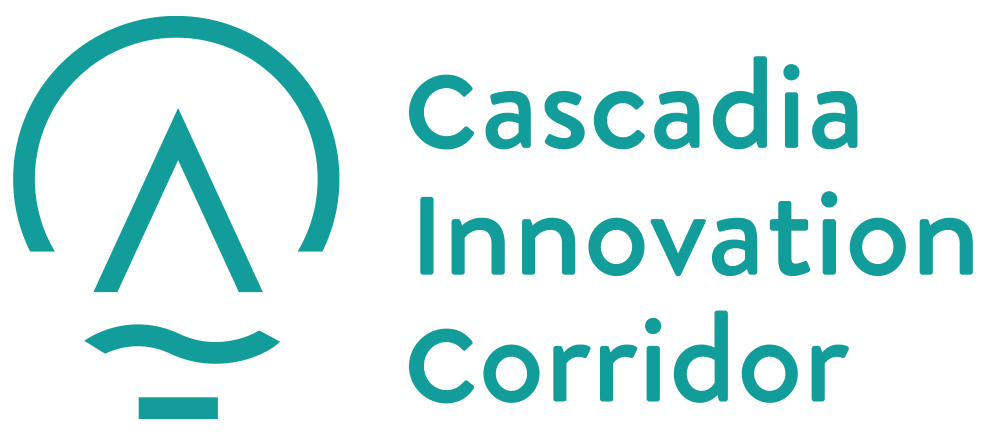HIGH-SPEED RAIL
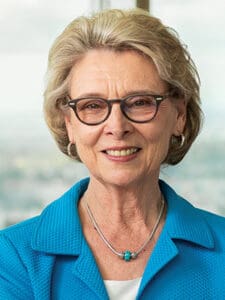
Chris Gregoire
CIC Co-Chair
Christine Gregoire is the CEO of Challenge Seattle, which is an alliance of CEOs from 22 of the region’s largest organizations who work together to tackle some of our most pressing civic challenges, such as homelessness and racial equity. As CEO of Challenge Seattle, Chris serves as the Washington co-chair for the Cascadia Innovation Corridor.
Previously, Chris served for two terms as Governor of the State of Washington with a $32B biennial budget and over 60,000 employees. In her first term as Governor, she created the Department of Early Learning and led on reforms to the K-12 system and investment in higher education. Chris led the state in a historical investment in infrastructure including the building of the largest floating bridge in the world and the largest transportation tunnel to open up Seattle’s waterfront. She addressed the water wars in the state and established the Puget Sound initiative to restore one of the nation’s major estuaries. She led an historic number of trade missions, reformed the foster care system to protect children, and was among the first to lead in health care reform. During her second term, Chris led the state in major reforms, management, and budgeting to position the state as one of the most financially secure to come out of the “Great Recession”.
Prior to becoming Governor, Chris served for three terms as Attorney General for the State and prior to becoming Attorney General, Chris served four years as the Director of the State Department of Ecology.
In addition to being CEO of Challenge Seattle, Chris is a former chair of the Fred Hutch Cancer Research Center and former Member of the National Bipartisan Governor’s Council.
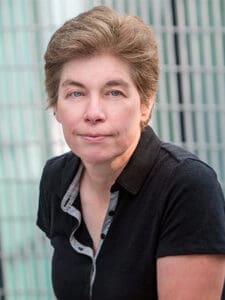
Gail Murphy, Ph.D.
Co-Chair, Higher Education Research Subcommittee
Gail C. Murphy (she/her) is a Professor of Computer Science and Vice-President of Research and Innovation at the University of British Columbia. She is a Fellow of the Royal Society of Canada and a Fellow of the Association for Computing Machinery (ACM), as well as co-founder of Tasktop Technologies Incorporated.
After completing her B.Sc. at the University of Alberta in 1987, she worked for five years as a software engineer in the Lower Mainland. She later pursued graduate studies in computer science at the University of Washington, earning first a M.Sc. (1994) and then a Ph.D. (1996) before joining UBC.
Dr. Murphy’s research focuses on improving the productivity of software developers and knowledge workers by providing the necessary tools to identify, manage and coordinate the information that matters most for their work. She also maintains an active research group with post-doctoral and graduate students.
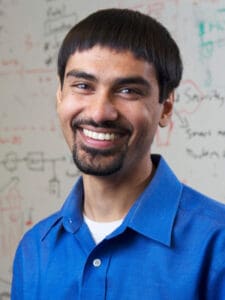
Shwetak Patel, Ph.D.
Co-Chair, Higher Education Research Subcommittee
Dr. Patel is the Washington Research Foundation Endowed Professor in the Paul G. Allen School of Computer Science & Engineering and the Department of Electrical & Computer Engineering at the University of Washington, where he directs the Ubicomp Lab. His research is in the areas of Human-Computer Interaction, Ubiquitous Computing, and Sensor-Enabled Embedded Systems, with a particular emphasis on the application of computing to health, sustainability, and interaction. He received his Ph.D. in Computer Science from Georgia Tech in 2008. He is a recipient of a MacArthur Fellowship, Sloan Fellowship, Microsoft Research Faculty Fellowship, MIT TR-35 Award, World Economic Forum Young Global Scientist Award, NSF Career Award, PECASE award, and the ACM Prize in Computing. He is also an ACM Fellow. Dr. Patel was a co-founder of a home energy monitoring company called Zensi (acquired by Belkin in 2010), a low-power home wireless sensing company called SNUPI Technologies (acquired by Sears in 2015), and a mobile health company called Senosis Health (acquired by Google in 2017).
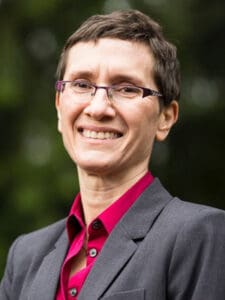
Irem Tumer, Ph. D
Co-Chair, Higher Education Research Subcommittee
Dr. Irem Y. Tumer is the Vice President for Research at Oregon State University. Irem brings leadership to a research environment that promotes creativity, entrepreneurship, and collaboration; provides support for university-wide research efforts; and maximizes the benefits of research for the economic and social advancement of Oregon, the nation, and the world. As an accomplished researcher, a former associate dean for research in OSU’s College of Engineering, and a former research scientist and program manager at NASA, Irem’s experience covers all aspects of the research enterprise. In her role, she is responsible for developing strategy and advocating for research while leading and managing the core functions of the research enterprise. Irem received her undergraduate, master’s, and doctorate degrees in mechanical engineering from The University of Texas at Austin.
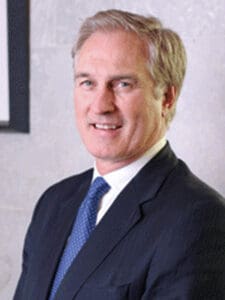
David Hoff
Co-Chair, Infrastructure Subcommittee
David Hoff is the Senior Vice President, Government Relations and Community Investment at Ledcor, Canada’s 3rd largest construction company with over 10,000 employees across North America and annual revenue of over $5 billion CAD ($4 billion USD). Previously, David had been the Senior Vice President, Corporate Communications and Public Affairs for Ledcor for a decade.
Prior to joining Ledcor, Dave was an independent consultant for 4 years working for the cement and concrete industry (Lafarge / Lehigh – Hanson – Heidelberg), high technology companies (3M and Bell Canada), and a prominent industrial union. Before that, David managed government and public affairs for Bell Mobility for 7 years during its expansion into Western Canada. David has also held senior positions in banking (CIBC), the Canadian federal government (Foreign Affairs and International Trade), and an international consulting firm.
Concurrent with these roles David was on the Board of Directors for VIA Rail Canada Inc. (10 years – Chair of HR committee), the Jack Webster Media Foundation (16 – chair), Vancouver Board of Trade (7 – Policy Ctte), and the Business Council of British Columbia (ongoing). Earlier, David served for 3 years on the KCTS-PBS TV Advisory Board and was a Treasurer of the Vancouver Economic Commission.
A citizen of Cascadia, David has traveled back and forth between Seattle and Vancouver over 100 times, by car and train, bus and airplane, float plane and helicopter.
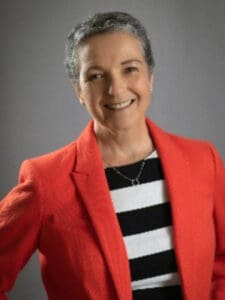
Paula Hammond
Co-Chair, Infrastructure Subcommittee
Paula Hammond is the National Transportation Market Leader for WSP USA, in Seattle, WA. Paula is responsible for representing the company as an industry leader in supporting clients in the emerging and integrated transportation topics of resilience, pricing, system operations, and performance management. Paula dedicated her 34-year public service career to improving transportation systems in Washington state and served as WA Secretary of Transportation from 2007-2013. She has been a national figure on transportation issues, with leadership on numerous AASHTO committees, TRB Executive Board, and industry associations. Ms. Hammond is a graduate of Oregon State University (OSU) with a B.S. degree in civil engineering. She is a registered professional engineer in the State of Washington.
Paula is the Immediate past-Chair of WTS International Board of Directors. WTS International is dedicated to creating a more diverse, inclusive, and equitable transportation industry through the global advancement of women.
Paula is currently serving as Chair of The American Road and Transportation Builders Association (ARTBA). ARTBA brings together all facets of the transportation development and construction industry to responsibly advocate for infrastructure investment and policy that meet the nation’s need for safe and efficient travel.
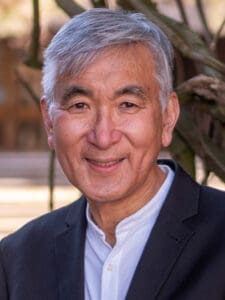
Rickey Y. Yada, Ph.D.
Co-Chair, Sustainable Agriculture Subcommittee
Professor Rickey Yada has served as Dean of the Faculty of Land and Food Systems at the University of British Columbia since 2014. Prior to UBC, Dr. Yada was at the University of Guelph where he held numerous leadership roles, including Assistant Vice President Research, Canada Research Chair in Food Protein Structure, and Scientific Director of the Advanced Foods and Materials Network (Networks of Centres of Excellence).
His areas of research include the structure-function relationships of enzymes (aspartic proteases), and carbohydrate biochemistry as related to nutrition and food quality. Dr. Yada is a co-editor of Trends in Food Science and Technology and serves on the editorial board of several journals. He is an advisor to many research and industry organizations, serving on the Board of the Canadian Food Innovation Network; Board of Canadian Agri-Food Automation and Intelligence Network; and, the Board of Bioenterprise Inc., to name a few. Other positions include Advisory Board Member – Arrell Food Institute; Member of the Scientific Advisory Panels – Riddet Institute (New Zealand) and AgResearch (New Zealand).
Dr. Yada recently completed a term as Global Innovation and Partnership Advisor to the Singapore Institute of Food and Biotechnology Innovation (SIFBI). He is also a Past President of the Deans Council of the Faculties of Agriculture, Food and Veterinary Medicine in Canada; Past President and Fellow of the Canadian Institute of Food Science and Technology, and the International Academy of Food Science and Technology; as well as a Fellow of the Institute of Food Technologists. Dr. Yada has an honorary DSc from the University of Guelph.
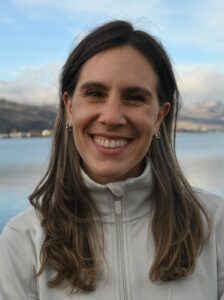
Dani Gelardi
Co-Chair, Sustainable Agriculture Subcommittee
Dani Gelardi joined the Washington State Department of Agriculture in 2021 as the Senior Soil Scientist and Climate Coordinator. She leads soil and climate efforts for the agency including the Washington Soil Health Initiative. She is also Adjunct Faculty at Washington State University in the Department of Crop and Soil Sciences. Dani received her Ph.D. and M.S. in Soils & Biogeochemistry from the University of California, Davis, as a Foundation for Food and Agriculture Research (FFAR) Fellow, and her B.S. from the University of California, Berkeley. Her research program encompasses soil health, biochar, conservation practice adoption, soil management challenges, and carbon accounting in agricultural lands. When she isn’t working, Dani is backpacking or reading science fiction.

Rickey Y. Yada, Ph.D.
Co-Chair, Sustainable Agriculture Subcommittee
Professor Rickey Yada has served as Dean of the Faculty of Land and Food Systems at the University of British Columbia since 2014. Prior to UBC, Dr. Yada was at the University of Guelph where he held numerous leadership roles, including Assistant Vice President Research, Canada Research Chair in Food Protein Structure, and Scientific Director of the Advanced Foods and Materials Network (Networks of Centres of Excellence).
His areas of research include the structure-function relationships of enzymes (aspartic proteases), and carbohydrate biochemistry as related to nutrition and food quality. Dr. Yada is a co-editor of Trends in Food Science and Technology and serves on the editorial board of several journals. He is an advisor to many research and industry organizations, serving on the Board of the Canadian Food Innovation Network; Board of Canadian Agri-Food Automation and Intelligence Network; and, the Board of Bioenterprise Inc., to name a few. Other positions include Advisory Board Member – Arrell Food Institute; Member of the Scientific Advisory Panels – Riddet Institute (New Zealand) and AgResearch (New Zealand).
Dr. Yada recently completed a term as Global Innovation and Partnership Advisor to the Singapore Institute of Food and Biotechnology Innovation (SIFBI). He is also a Past President of the Deans Council of the Faculties of Agriculture, Food and Veterinary Medicine in Canada; Past President and Fellow of the Canadian Institute of Food Science and Technology, and the International Academy of Food Science and Technology; as well as a Fellow of the Institute of Food Technologists. Dr. Yada has an honorary DSc from the University of Guelph.
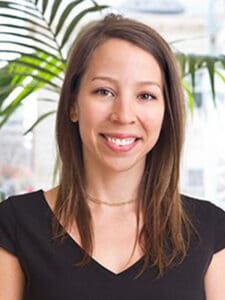
Molly Jones
Co-Chair, Transformative Technologies Subcommittee
Molly Jones brings experience across business, policy, and international affairs to the Cascadia Innovation Corridor. She is currently the Vice President for Government Affairs at Payactiv, a startup that has pioneered earned wage access to help everyday Americans build financial wellness. She previously served as the Vice President for Government Affairs at the Washington Technology Industry Association (WTIA) and led the association’s advocacy and policy thought leadership efforts. Previously, she was a Vice President at The Asia Group, a strategic and business advisory firm focused on Asia. In her role, she advised clients on strategies for market entry, expansion, and social responsibility.
Molly graduated from Georgetown University’s School of Foreign Service with a Bachelor of Science in Science, Technology, and International Affairs. She received a Master of Public Policy from Australian National University, where she was a Fulbright Anne Wexler Scholar.
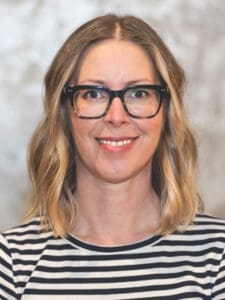
Pamela Saunders
Co-Chair, Transformative Technologies Subcommittee
Pamela Saunders is the Director of Communications and Engagement for Microsoft’s research and development campus in Vancouver. With more than 20 years in corporate communications across a variety of industries, she joined the company in 2016 to shape regional investment through collaborative partnerships. Pam advocates for Vancouver’s tech sector, serving on the Board of Directors for the BC Tech Association, advising on Microsoft’s investment in the Digital Technology Supercluster and forging connections along the Cascadia Innovation Corridor.
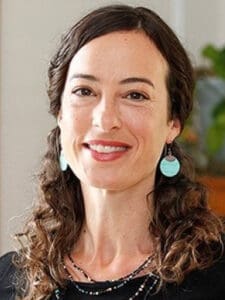
Laurie Trautman, Ph.D.
Co-Chair, US/Canada Border Subcommittee
Dr. Laurie Trautman is the Director of the Border Policy Research Institute at Western Washington University, where she engages in a range of research activities focused on the Canada – U.S. border space, and the Washington State – British Columbia region. In addition to working with faculty and students, she collaborates with the private sector and government agencies to inform policy solutions and advance cross-border collaboration, both regionally and globally. Laurie participates in numerous efforts that are actively engaged in the Canada–U.S. relationship and co-chairs working groups focused on the border for the Pacific Northwest Economic Region and the Cascadia Innovation Corridor. Laurie also serves on the board of directors for the Future Borders Coalition, a binational organization dedicated to building a better Canada–U.S. border.
Laurie is currently a Global Fellow with the Woodrow Wilson Center for International Scholars, a Fellow with the Canadian Global Affairs Institute, and Vice President of the Association for Borderland Studies. She holds degrees from Western Washington University, Montana State University, and a Ph.D. in Geography from the University of Oregon.
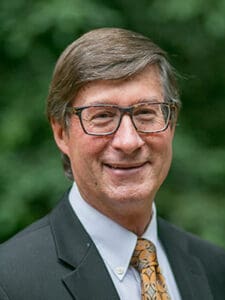
Matt Morrison
Co-Chair, US/Canada Border Subcommittee
Matt Morrison, CEO of the Pacific NorthWest Economic Region (PNWER), serves the public/private partnership established in 1991 by statute in the states of Alaska, Washington, Idaho, Montana, and Oregon, and the western Canadian provinces of British Columbia, Alberta, Saskatchewan, the Yukon, and Northwest Territory, and manages the Pacific Northwest Center for Regional Disaster Resilience.
The mandate of PNWER is to build the region’s economy while maintaining the region’s natural environment. PNWER’s 15 working groups include trade & economic development, border issues, agriculture, invasive species, tourism and transportation, and several others based on the key economic sectors in the bi-national region.
Mr. Morrison has been a leader in promoting innovation in the Canada-US border region and has been instrumental in several successful pilots of the Beyond the Border and Perimeter Security Action Plan. Under his guidance, PNWER has led a Pre-Clearance Task Force for the past 3 years with federal officials (CBP, CBSA, DHS, Transport Canada, Public Safety Canada), as well as private sector carriers (air, marine, and rail), and was instrumental in ensuring that the legislation for implementation for the preclearance agreement was adopted in both the US Congress and Canadian Parliament. Along with his role at PNWER, Mr. Morrison is Co-Chair of the Future Borders Coalition, a group of public and private organizations bringing solutions to border issues in all modes at the Canada – U.S. border. The FBC is currently working on COVID resilience and solutions to safely easing border restrictions based on science and health standards.
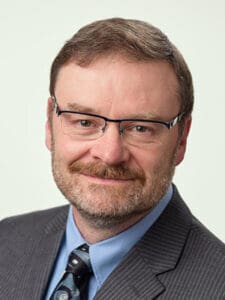
Tom Roemer, Ed.D.
Co-Chair, Workforce Subcommittee
After 30 years in the Canadian post-secondary education system, Tom Roemer now works as a private consultant in the field of global strategic workforce development, assisting governments and institutes in Africa, South America, and the Caribbean. Closer to home he provides keynotes, strategic planning seminars, and project management in various contexts.
Prior to retirement from the public post-secondary system, Tom spent 7 years as Vice President Academic at BCIT, where he devised innovative new concepts such as microcredentials, open multi-disciplinary credentials, and the TradeUp BC centre for the upskilling of the provincial trades.
Tom holds a master’s degree in astrophysics from the University of Munich, and a doctorate in educational leadership from Simon Fraser University. He is an adjunct professor at Simon Fraser University and served on the board of Innovate BC.
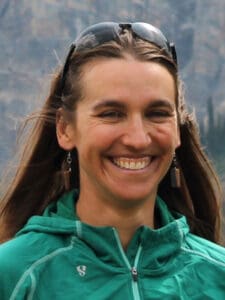
Sonya Doucette, Ph.D.
Co-Chair, Workforce Subcommittee
Dr. Sonya Remington Doucette is a climate justice and sustainability leader at Bellevue College (2013–present), where she is Chair of the Sustainability Curriculum Committee, the Sustainability Concentration Coordinator, and manager of the Climate Justice in the Curriculum Project. She is also the Principal Investigator of a National Science Foundation Improving Undergraduate STEM Education grant that funds the C-JUSTICE project: “Climate Justice in Undergraduate STEM: Incorporating Civic Engagement.” She works to thread climate justice, civic engagement, systems thinking, and positive stories of change into her chemistry and environmental science courses. She supports other STEM faculty, who have similar goals, through a faculty professional development (PD) curriculum created in collaboration with Dr. Heather Price and Dr. Irene Shaver. In 2022-2023, the Washington state legislature funded an effort led by Dr. Shaver, Program Manager of the Climate Solutions program at the SBCTC, to disseminate their work to the 34 community and technical colleges in WA state. She is also a 2023 recipient of the Wm E. Bennett Award for Extraordinary Contributions to Citizen Science.
Prior to Bellevue College, Dr. Doucette was a Senior Lecturer in the School of Sustainability at Arizona State University (2010 – 2013). At ASU, she authored an introductory sustainability textbook Sustainable World: Approaches to Analyzing and Resolving Wicked Problems (2017, 2nd edition), and conducted sustainability education research. One manuscript was highly commended as Outstanding Papers in the International Journal of Sustainability in Higher Education’s Annual Awards for Excellence. From 2008 – 2010, she was a post-doctoral teaching fellow in the Program on the Environment at the University of Washington. She began her academic sustainability career in 2007 when she became active in the Curriculum for the Bioregion (C4B) initiative.
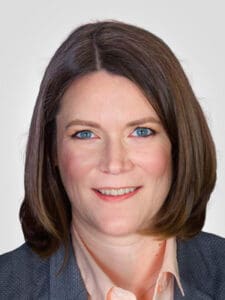
Angela Becker-Dippman
Co-Chair, PPP for Climate Subcommittee
Angela Becker-Dippmann serves as Director of the Energy & Environment Directorate’s Program Development Office. She rejoined PNNL in April 2019. In this cross-cutting role, she evaluates emerging national, regional, and state energy and environmental priorities, policies, and programs to ensure EED’s mission strategy and S&T are focused on the most impactful outcomes. She is based in PNNL’s Seattle office.
Angela was with PNNL from July 2011 to January 2015 as a senior policy analyst in EED, before leaving to serve as Staff Director at the U.S. Senate Committee on Energy and Natural Resources (SENR), with jurisdiction over the Department of Energy’s Office of Science, applied R&D programs, Bonneville Power Administration, the Federal Energy Regulatory Commission and U.S. Department of Interior. With SENR, she managed 20 policy professionals, legislative counsels, federal agency detailees, and science fellows to execute the Committee’s energy, infrastructure, environmental, and public lands agenda, under the leadership of Ranking Member Maria Cantwell (D-WA).
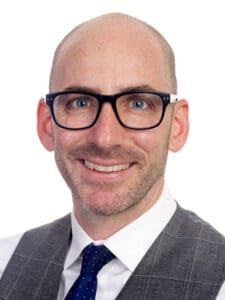
Andrew Hoan
Member-At-Large
Andrew Hoan became president and CEO of the Portland Business Alliance and the Portland Metro Chamber on June 18, 2018.
Prior to joining, Andrew was president and CEO of the Brooklyn Chamber of Commerce. Before his tenure at the Brooklyn Chamber, he worked in the Office of the Brooklyn Borough President where he directed capital spending and economic development policy. Andrew moved to New York through participation in a national service year as an AmeriCorps VISTA member, helping New Yorkers seek free civil legal help at the New York Legal Assistance Group, and went on to develop corporate programming for the largest provider of homeless services in New York City, Volunteers of America.
Andrew has been an appointee to several agencies and authorities throughout his career, and in Portland has served on Mayor Ted Wheeler’s Council of Economic Advisors, Metro Council President Lynn Peterson’s President’s Council, Multnomah County’s Preschool for All Taskforce, and co-chair of Former Commissioner JoAnn Hardesty’s Small Business Committee. Presently, he serves on the boards of directors of All Hands Raised, the Black Business Association of Oregon, Cascadia Innovation Corridor, Greater Portland Inc., Oregon Business & Industry, Sports Oregon, Travel Portland, and is the treasurer of the Portland Economic Investment Corporation.
He holds a Bachelor of Science in Economics from the University of Wisconsin and a Masters of Urban Planning from New York University.
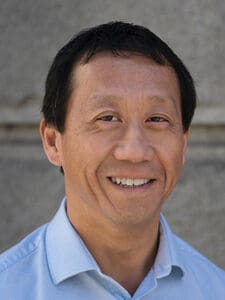
Bill Tam
Member-At-Large
Bill Tam is recognized as one of the pre-eminent leaders of the Canadian tech sector. A lifelong entrepreneur, Bill has been actively involved with technology and start-ups as a founder, executive, investor, advisor, and board member for the past 20 years. Bill co-founded the development of the Digital Technology Supercluster – a signature innovation program in Canada to drive large-scale collaboration among industry leaders, small and medium enterprises, and post-secondary institutions to develop new technology breakthroughs in digital health and climate adaptation.
Bill forges partnerships across private and public sectors to accelerate economic growth and foster inclusiveness. He serves on the Steering Committee of the Cascadia Innovation Corridor initiative – a cross-border partnership between British Columbia, Washington, and Oregon to develop and promote a globally recognized hub of innovation and commerce.
Bill serves as a director of CBC-Radio Canada, Invest Vancouver, and Creative BC. In addition, he serves as an advisor to the Vancouver Chinatown Foundation, Founders Institute, and the Rideau Hall Foundation, and he is an industry advisor at the University of British Columbia (UBC), Simon Fraser University, and the British Columbia Institute of Technology. He is a recipient of UBC’s Dean’s Medal of Distinction for his contributions to the engineering and tech community.
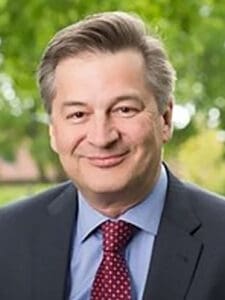
Ken Macartney
Member-At-Large
Ken Macartney became Executive Director, International Relations, Intergovernmental Relations Secretariat, Government of British Columbia, in August 2022. He retired from Global Affairs Canada in 2018 after a 35-year diplomatic career that included serving as Canada’s Ambassador to Sweden, Deputy High Commissioner to India, Chargé d’Affaires to Norway, and earlier postings to Japan, Sweden, and Norway. At headquarters, he served as Director General, South, Southeast Asia, and Oceania, Director, International Environmental Affairs, member of the Southern Africa Task Force, and desk officer for Middle East Relations and for UN Affairs. Following his retirement from Global Affairs and prior to his joining the B.C. government, Ken was an Associate Fellow at the Centre for Global Studies at the University of Victoria, the same university he graduated from in 1982.
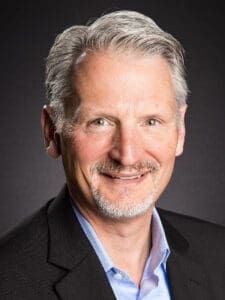
Steve Mullin
Member-At-Large
Steve Mullin is president of the Washington Roundtable, an organization comprised of senior executives of major private sector employers who work to effect positive change on public policy issues that support economic vitality and foster opportunity for all Washingtonians. He is also board president of the Roundtable’s education foundation, Partnership for Learning, a 501(c)3 organization that works to increase post-secondary credential attainment among Washington students. Steve is responsible for providing overall strategic direction and management of both organizations.
Prior to joining the Roundtable, Steve worked for several public affairs consulting firms, as a U.S. Senate staff member in Washington, D.C., and as a legislative staff member in Olympia. He is a graduate of Middlebury College and the University of Washington’s Evans School of Public Affairs. Steve chairs the board of Pioneer Human Services. He also serves on the boards of the Washington Health Alliance and the Washington Research Council, as well as the Western Governors University-Washington Advisory Board, the Seattle Colleges Chancellor’s Advisory Council, and the University of Washington’s Mobility Innovation Center Advisory Committee. Steve has served as the business co-chair of Keep Washington Rolling, the statewide umbrella coalition for transportation investment, since 2004.
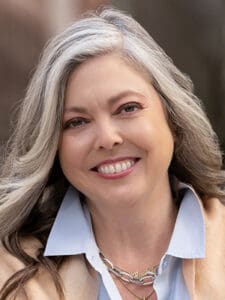
Rachel Smith
Member-At-Large
Rachel Smith serves as the President and CEO of the Seattle Metropolitan Chamber of Commerce, representing 2,500 businesses and about 750,000 employees. She is recognized by regional leaders for building effective coalitions, synthesizing and analyzing complex information, making systems work for the people they are intended to serve, and working collaboratively to secure significant policy achievements that enrich and foster the growth of the regional business community.
These skills and motivations have been evident in her work through directing the launch of the Chamber’s research project on quality of life (The Index), advocating for Seattle’s minority-owned businesses, and helping businesses navigate the pandemic. In addition, Rachel has played a pivotal role in delivering government investments that generate economic benefit and enhance quality of life for employers and their employees in the region, including the 2022 passage of Move Ahead Washington, a state transportation package that included many business community priorities.
Rachel brings 20 years of government affairs, policy, operations, and advocacy experience, including 13 years serving in local and regional government. Prior to her Chamber role, she served as Deputy County Executive and Chief of Staff to King County Executive Dow Constantine. Earlier in her career, Rachel served as Government and Community Relations Officer for Sound Transit, and in the administration of former Seattle Mayor Greg Nickels.
Rachel’s work in the nonprofit sector includes her current board positions with United Way of King County, the Association of Washington Business, and the Seattle Sports Commission. Since 2021, Rachel has been an active member of Seattle 4 Rotary.
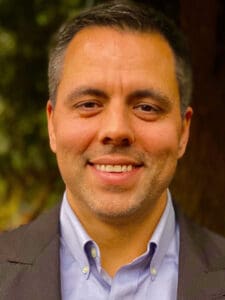
Kris Peters
Member-At-Large
Kristopher (Kris) Peters; is the Chairman of the Squaxin Island Tribe in Mason County. Before his appointment as the Tribal Chair, Kris worked for three years as the Tribal Administrator at Squaxin and has nearly 20 years of experience working in public safety and social work in Indian country. He has also worked as an adjunct professor at the Evergreen State College in Indigenous Studies. Kris has authored and been featured in multiple publications on tribal leadership and administration. Kris holds a Bachelor of Arts degree with an emphasis on Federal Indian Law and Tribal Governance and a Master of Public Administration, Tribal Governance degree from The Evergreen State College. Kris is a lifelong resident of the Olympia area.
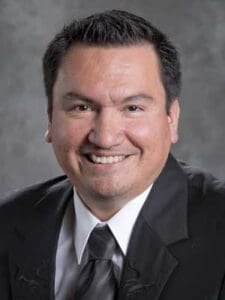
Ian Campbell
Member-At-Large
Chief Ian Campbell is a Hereditary Chief of the Squamish Nation. He served 16 years as an Elected Councillor and 22 years as a lead negotiator for the Squamish Nation. Chief Campbell led the acquisition of 120 acres of prime real estate in Vancouver, creating a historic partnership between the Musqueam, Squamish, and Tsleilwaututh First Nations. He also led the first-of-its-kind Indigenous environmental assessment of the Woodfibre LNG project while creating substantive procurement and partnership opportunities. Chief Campbell has an MBA from Simon Fraser University, sits on numerous private and public boards, and is a seasoned International speaker.
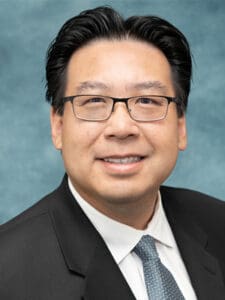
Mike Fong
Member-At-Large
Mike Fong (he/him) has more than two decades of experience in the public sector at the city, county and national level, leading people and managing complex policy priorities. Prior to being appointed Commerce Director by Gov. Jay Inslee, he served as Pacific Northwest regional administrator for the U.S. Small Business Administration. Fong’s past leadership roles include serving as senior deputy mayor of Seattle where he led policy development to provide funding for two years of free community college for public high school graduates. Fong is committed to supporting Commerce’s mission of strengthening communities and growing economic opportunity in every corner of the state. He has been honored with the International Examiner’s Community Voice award for excellence in civic leadership, and continues to do volunteer work in his community. Fong serves on the Board of the WA State Ballpark Public Facilities District overseeing T-Mobile Park (home of the Seattle Mariners) and spent several years coaching youth basketball for the Seattle Chinese Athletic Association. A native of Spokane, he received his Bachelor of Arts in political science from the University of Washington. He speaks Cantonese fluently.
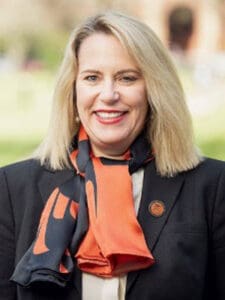
Staci Simonich, Ph.D.
Co-chair, Sustainable Agriculture Subcommittee
Dr. Staci L. Simonich is Dean of the College of Agricultural Sciences (CAS) and Director of the Oregon Agricultural Experiment Station at Oregon State University (OSU). In addition, she is a Professor in Environmental and Molecular Toxicology and Chemistry at OSU.
In addition to receiving her MBA from Oregon State University in 2020, Dr. Simonich received her Ph.D. in chemistry from Indiana University in 1995. Her research has been published in Science, Nature, Environmental Health Perspectives, Environmental Science & Technology, and the Proceedings of the National Academy of Sciences.
During her tenure at OSU and CAS, Staci has mentored 30 Ph.D. and M.S. students and 24 undergraduate students in her laboratory and has received several awards related to her mentoring of diverse groups of OSU students and employees. Over her career, Dr. Simonich has received over $15M in extramural funding from the National Science Foundation, National Institute of Environmental Health Sciences, Department of Defense, and Department of Interior and became a Fellow of the American Association for the Advancement of Science (AAAS) in 2021.
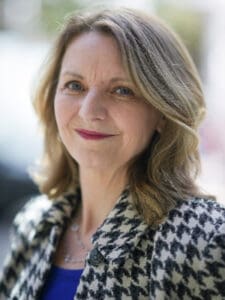
Laura Jones
CIC Co-Chair
Laura Jones is the President and Chief Executive Officer of the Business Council of BC. (BCBC), a non-partisan organization dedicated to the prosperity of the province and its people. BCBC has represented the province’s leading businesses across all sectors for over fifty years.
Laura is a nationally recognized leader in public policy who is passionate about the importance of a strong economy as the foundation for supporting prosperous communities.
She has authored and co-authored numerous research reports and policy briefings on a wide range of topics. She is recognized worldwide for her thought leadership on regulatory modernization, including the creation of Canada’s annual Red Tape Awareness Week. Her work has been published by the Organisation for Economic Cooperation and Development (OECD) and the Harvard Journal of Law & Public Policy.
Her work and recommendations have led to policy improvements, including the adoption of taxpayer fairness codes by governments in BC and Canada, the reduction of interprovincial trade barriers, and the implementation of regulatory measurement and budgets across Canada.
She currently chairs the federal External Advisory Committee on Regulatory Competitiveness and has served on advisory committees including a B.C. Expert Panel on Tax and the B.C. Small Business Roundtable.
Prior to joining BCBC, Laura was Chief Strategic Officer and Executive Vice President of the Canadian Federation of Independent Business (CFIB), a non-profit, non-partisan association advocating for independent businesses across Canada. During her time at CFIB she oversaw CFIB’s advocacy, research, marketing partnerships and member relations teams. She has also led strategic communications initiatives and an IT team transition.
A strong believer in collaboration and professional growth, Laura established CFIB’s internship program more than a decade ago and is responsible for VP-level development to help with succession planning.
Laura received her. B.A. in Economics from Mount Holyoke College in Massachusetts and her M.A. in Economics from Simon Fraser University.
She lives in Vancouver with her husband and three teenage children. Outside of work, she enjoys adult ballet classes, spending time with her kids, and summer swims in the ocean, all of which bring her joy.
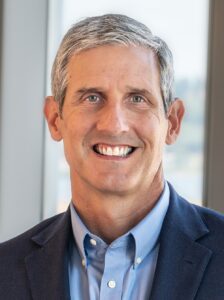
Dave Robertson
Co-Chair, PPP for Climate Subcommittee
As Port of Portland’s chief public affairs officer, Dave Robertson oversees the Port’s communications and government relations teams. Before joining the Port in July 2023, Dave served for 18 years as the vice president of public affairs and the director of government affairs at Portland General Electric. He was responsible for PGE’s Communications, Government Relations, Environmental Policy and Corporate Social Responsibility teams.
Before joining PGE, he served as director of government relations–west for Pacific Gas & Electric’s National Energy Group. He was also a member of U.S. Sen. Mark Hatfield’s legislative policy staff in Oregon and Washington, D.C., and a consultant working for energy companies, tribal governments, business associations and environmental groups.
Dave is a native of Portland and grew up in the Parkrose neighborhood and in Washington, DC. He served as chair of the Portland Business Alliance and board secretary for the Oregon Business and Industry Association. In the past, he served as an Oregon appointee to the Columbia River Gorge Commission, was chair of the board of the environmental nonprofit SOLVE and served as a board member of Portland Center Stage. He is currently a board member for the Pacific Ocean Energy Trust. He earned a bachelor’s degree in political science from Willamette University and a utility management certificate from the University of Idaho. Dave is married with three children and enjoys mountain biking and fly fishing.
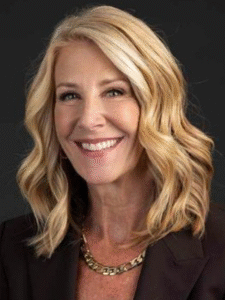
Bridgitte Anderson
Executive Committee
Bridgitte Anderson is the President and CEO of the Greater Vancouver Board of Trade — Western Canada’s most active business association, known for influencing decision-makers, and educating, connecting with, and engaging our communities.
Bridgitte is the first woman to lead the Greater Vancouver Board of Trade in its 137-year history. She is committed to building a more competitive and sustainable economy while evolving the Board’s programs to foster a more diverse and inclusive region.
Her career has focused on public policy, business, and journalism. Prior to Bridgitte’s current role, she was the Vancouver General Manager for Edelman, a global public relations firm advising clients on crisis communication, media strategy, and government and stakeholder relations. Following a 20-year career in journalism, Bridgitte served as Press Secretary to BC Premier Gordon Campbell, leading communications strategy for the Premier during the 2010 Winter Olympics and the 2009 BC election.
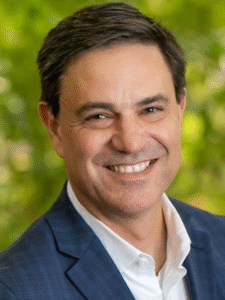
John Tapogna
Executive Committee
John Tapogna is a Senior Policy Advisor at ECONorthwest with a focus on economic development, fiscal, housing, workforce, education, and social policy. He works closely with the Oregon Business Foundation, and other clients have included the Bill and Melinda Gates Foundation, the Lumina Foundation, and numerous state agencies and local governments across the United States.
John served as ECONorthwest’s president from 2009-2021 and oversaw a strategy that successfully transitioned the firm to a second generation of ownership and expanded its presence along the West Coast and into the Intermountain West. John served on the Board of ECOnorthwest through 2023. Prior to joining ECONorthwest, he was an Analyst at the U.S. Congressional Budget Office and a Peace Corps volunteer in Chile.
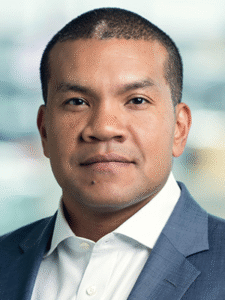
Brian Surratt
Executive Committee
Brian Surratt is president and chief executive officer of Greater Seattle Partners (GSP) and leads GSP’s global marketing, economic development and international trade and investment strategies to drive quality jobs, investment, and talent to the Greater Seattle region. Prior to leading GSP, he served as the executive director of the Puget Sound office of the Local Initiatives Support Corporation (LISC), one the country’s largest community development organizations. Previously, he was vice president for real estate development and community relations at Alexandria Real Estate Equities, Inc., an urban real estate investment trust focused on building collaborative life science and technology campuses in the nation’s leading innovation centers.
From 2015 to 2017 Surratt worked for the City of Seattle, serving as the director of the Office of Economic Development. During that time, he successfully negotiated a memorandum of understanding to redevelop Climate Pledge Arena, outlining the major financial, development, operational, public benefit, and labor terms for the $1 billion redevelopment project. He is also credited for expanding Seattle’s youth employment program to 3,500 youth employed and facilitating several innovative real estate development projects in Seattle’s Black community to address displacement and gentrification.
Prior to that, he held various positions in Seattle’s Office of Economic Development—including deputy director, business development director, and industry sectors manager. He was also a senior policy advisor for Seattle’s Office of Policy and Innovation, where he served as the policy lead on Seattle’s historic effort to establish a $15 per hour minimum wage. In the early 2000s he was a public affairs manager for First & Goal, Inc./Seattle Seahawks. He began his career as a legislative assistant for former Washington State Representative Jim McIntire.

